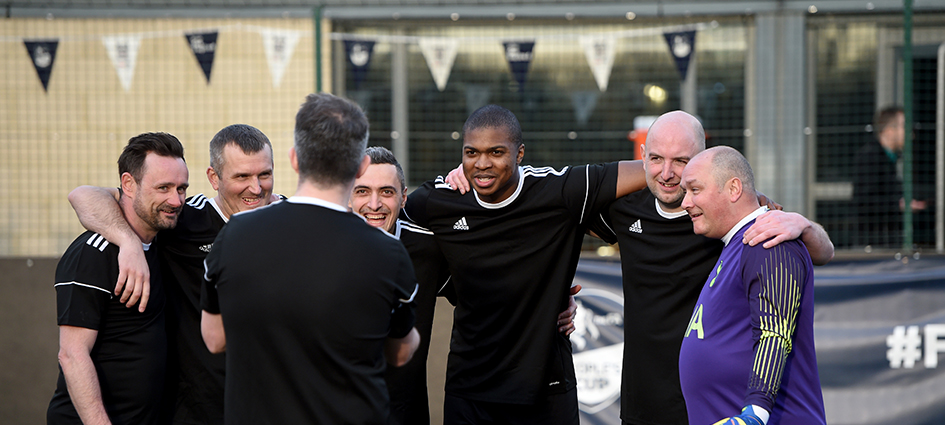
Talking to your players about mental health
- Peter Glynn
- 10 October 2019
Starting a conversation with your players about their mental health can help more adult footballers stay in the game and enjoy the benefits football has to offer.
For many adult grassroots football players, training and matchday is the highlight of their week.
The camaraderie of being part of a team and the sense of well-being that follows physical activity can offer a release from the routine and pressures of adult life.
However, for all the benefits the game brings, it isn’t uncommon to see adult players grow disengaged and disinterested in football.
One of the causes: mental health. Over the next 12 months, it is estimated that four million people involved in grassroots may experience mental health problems.
As a coach you can play an important role in helping players with this. Through effective observation and appropriate communication you can start a positive conversation about mental health and help more players stay in the game.
Changes in attitude, behaviour and mood may indicate a player in your team is experiencing mental health problems. Look out for individuals who behave out of character or show symptoms such as over exercising or self-harm.
If you think a player in your team is experiencing a mental health problem, follow the ALERT acronym, as outlined in the Heads Up campaign, to support them:
Ask
Ask discreetly if they want to talk about it. If they say yes, then it’s about finding the right setting – somewhere private where they feel comfortable and equal. Don’t worry about asking directly about how they’re feeling. There is no evidence that asking sensitive questions makes the situation worse. Instead, the simple act of being asked and being able to talk about how you are feeling is much more likely to be helpful.

Listen
Listen attentively. Ask simple, open and non-judgmental questions. Let them explain in their own words how they’re feeling. Try not to assume you already know what may have caused their feelings, or what will help. When the conversation starts, actively listen by giving your undivided attention. Try to leave any questions or comments you may have until the person has finished, so you don’t interrupt them. With space and time to talk, people are more likely to open up.
Encourage
Remember you’re not expected to be a mental health professional and you should encourage people to seek advice, where appropriate. It’s important for you to maintain boundaries and should support the player to speak to a family member, friend or GP. More advice is available in the links below.
Reassure
Reassure the person that they’re not alone. Seeking help can feel lonely and sometimes scary. Let them know there is support out there – and that you can help signpost them to the help they may need.

Tell
Tell a specialist person if you think urgent action is needed. An emergency could arise if one of your adult players:
- have harmed themselves and need medical attention
- is having suicidal feelings and feel they may act on them
- is putting themselves or someone else at immediate serious risk of harm.
If they are not safe by themselves - and as long as you feel able to do so - you should stay with them and help them call 999 for an ambulance or help them get to A&E.
For more information on all of the above and further details about how to support your players’ mental health read the official ‘Heads up’ guidance notes for managers and coaches working in adult football here.
‘Heads Up’ is the result of a partnership between The FA and Heads Together. Heads Together is a mental health initiative spearheaded by The Royal Foundation of The Duke and Duchess of Cambridge and The Duke and Duchess of Sussex. Read more about the ‘Heads Up’ campaign by clicking here.
The Boot Room will be publishing articles supporting the campaign throughout the 2019/20 season.


